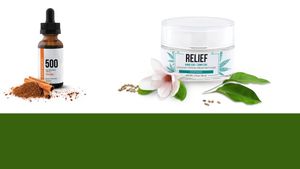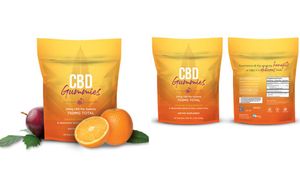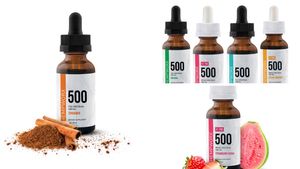Menopause is a transformative stage of life that comes with its own set of challenges, including hormonal shifts that can disrupt gut health. Bloating, indigestion, and irregular bowel movements are just a few of the digestive issues many women face during menopause. The good news? Supplements can play a key role in supporting your gut health during this transition. Below, we explore the best supplements to improve digestion, balance gut bacteria, and reduce inflammation for optimal gut health in menopause.
1. Probiotics
Probiotics are essential for maintaining a balanced gut microbiome. These "good bacteria" help improve digestion, boost immunity, and reduce bloating. During menopause, estrogen levels drop, which can lead to an imbalance in gut bacteria.
Best Sources: Look for a high-quality probiotic supplement with diverse strains, including Lactobacillus and Bifidobacterium, which are known to support hormonal health and digestion.
Tip: Choose a supplement with at least 10 billion CFUs (colony-forming units) for maximum benefits.
2. Prebiotics
Prebiotics are the fiber-rich foods that feed probiotics, helping them thrive in your gut. Supplementing with prebiotics ensures your gut bacteria remain balanced and healthy.
Best Sources: Look for supplements containing inulin, chicory root, or fructooligosaccharides (FOS).
Tip: Prebiotics can sometimes cause gas and bloating in sensitive individuals, so start with a lower dose and gradually increase.
3. Digestive Enzymes
As we age, our body's production of digestive enzymes decreases, making it harder to break down food. Digestive enzyme supplements can help improve nutrient absorption and reduce discomfort like bloating and indigestion.
Best Sources: Opt for a comprehensive digestive enzyme supplement that includes protease, amylase, and lipase to break down proteins, carbs, and fats effectively.
Tip: Take digestive enzymes before meals for the best results.
4. Omega-3 Fatty Acids
Omega-3s are anti-inflammatory powerhouses that can help reduce gut inflammation caused by hormonal changes. They also support brain and heart health, which are crucial during menopause.
Best Sources: Fish oil supplements or plant-based omega-3s like flaxseed oil or algae-based DHA/EPA.
Tip: Choose a high-quality supplement that’s third-party tested for purity.
5. Magnesium
Magnesium is a critical mineral for menopausal women, as it supports muscle relaxation, including the muscles in your digestive tract. It can help ease constipation and improve overall gut motility.
Best Sources: Look for magnesium citrate or magnesium glycinate for gut health benefits.
Tip: Start with a small dose to avoid loose stools and adjust as needed.
6. Collagen Peptides
Collagen supports gut lining integrity, which can be compromised by inflammation or hormonal imbalances. It also promotes healthy skin, hair, and joints, making it a menopause must-have.
Best Sources: Hydrolyzed collagen peptides are easily absorbed and can be mixed into smoothies, coffee, or water.
Tip: Pair collagen with vitamin C for enhanced absorption.
7. Vitamin D
Vitamin D plays a role in maintaining a healthy gut microbiome and reducing inflammation. Many menopausal women are deficient in this essential nutrient, which can impact digestion and overall health.
Best Sources: Look for vitamin D3 supplements, which are more effective than D2.
Tip: Get your vitamin D levels checked to determine the right dosage for your needs.
8. Fiber Supplements
Fiber is essential for regular bowel movements and overall gut health. While it’s best to get fiber from whole foods, supplements can be a great option for those who struggle to meet their daily fiber needs.
Best Sources: Psyllium husk, acacia fiber, or methylcellulose are gentle and effective fiber supplements.
Tip: Gradually increase fiber intake to avoid gas or bloating, and drink plenty of water to aid digestion.
9. Turmeric/Curcumin
Curcumin, the active ingredient in turmeric, is known for its anti-inflammatory properties. It can help reduce gut inflammation and support a healthy digestive system during menopause.
Best Sources: Choose a curcumin supplement with black pepper extract (piperine) for better absorption.
Tip: Take curcumin with a meal containing healthy fats for maximum absorption.
10. Zinc
Zinc supports gut lining integrity and helps repair damage caused by inflammation or stress. It also plays a role in supporting immune health, which is closely linked to gut health.
Best Sources: Zinc gluconate or zinc picolinate are highly absorbable forms of this mineral.
Tip: Don’t exceed the recommended daily dose, as too much zinc can cause stomach upset.
Choosing the Right Supplements
When selecting supplements, always prioritize quality. Look for brands that are third-party tested, use clean ingredients, and avoid unnecessary fillers. If you’re unsure where to start, consult a healthcare professional or nutritionist to customize your supplement routine based on your specific needs.
Final Thoughts
Taking care of your gut health during menopause can have a profound impact on your overall well-being. By incorporating these supplements into your daily routine, you can improve digestion, reduce discomfort, and support a balanced gut microbiome. Pair supplements with a nutrient-rich diet, regular exercise, and stress management for optimal results. Embrace this new chapter with confidence and vitality—your gut will thank you!



Member discussion